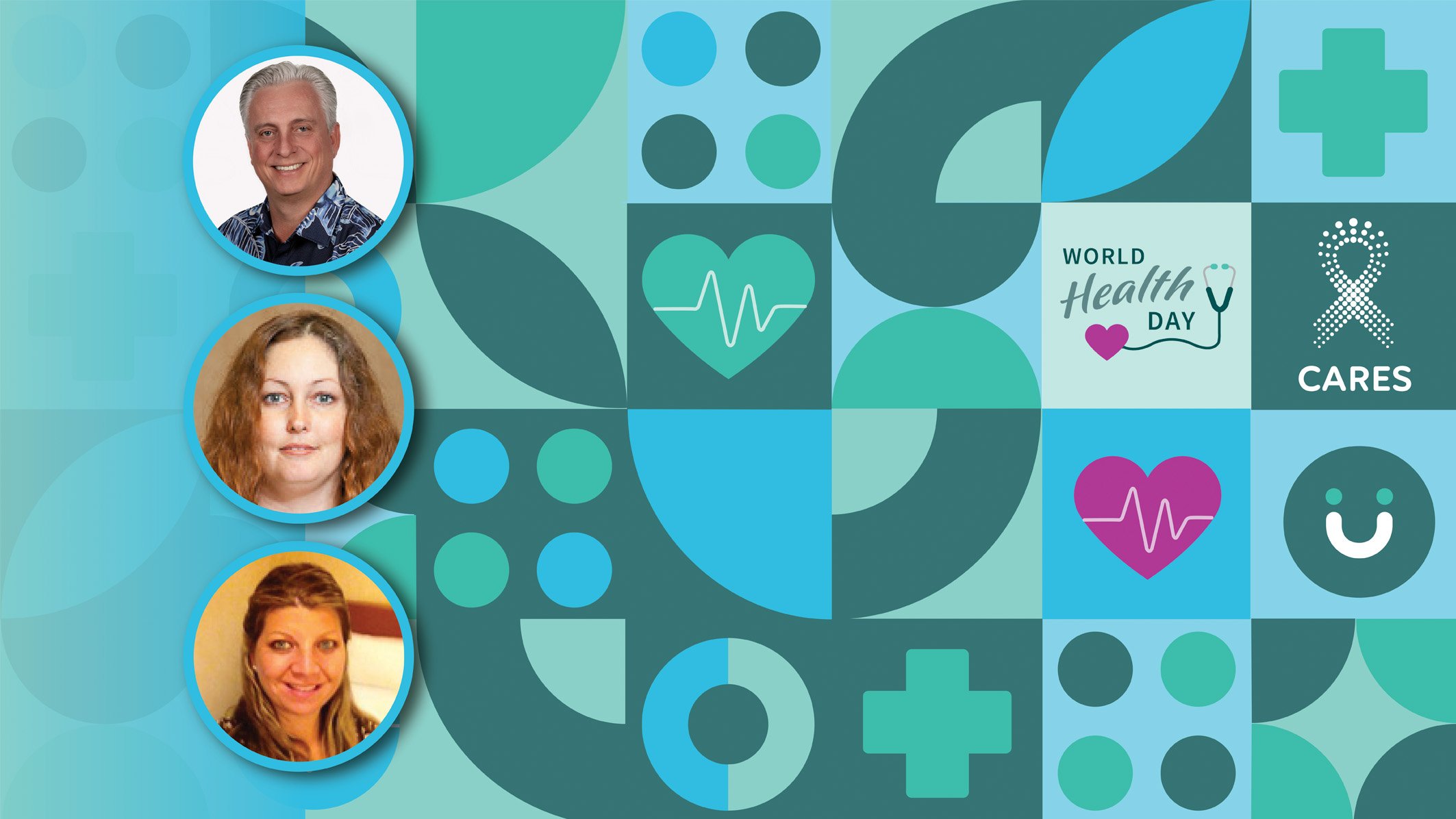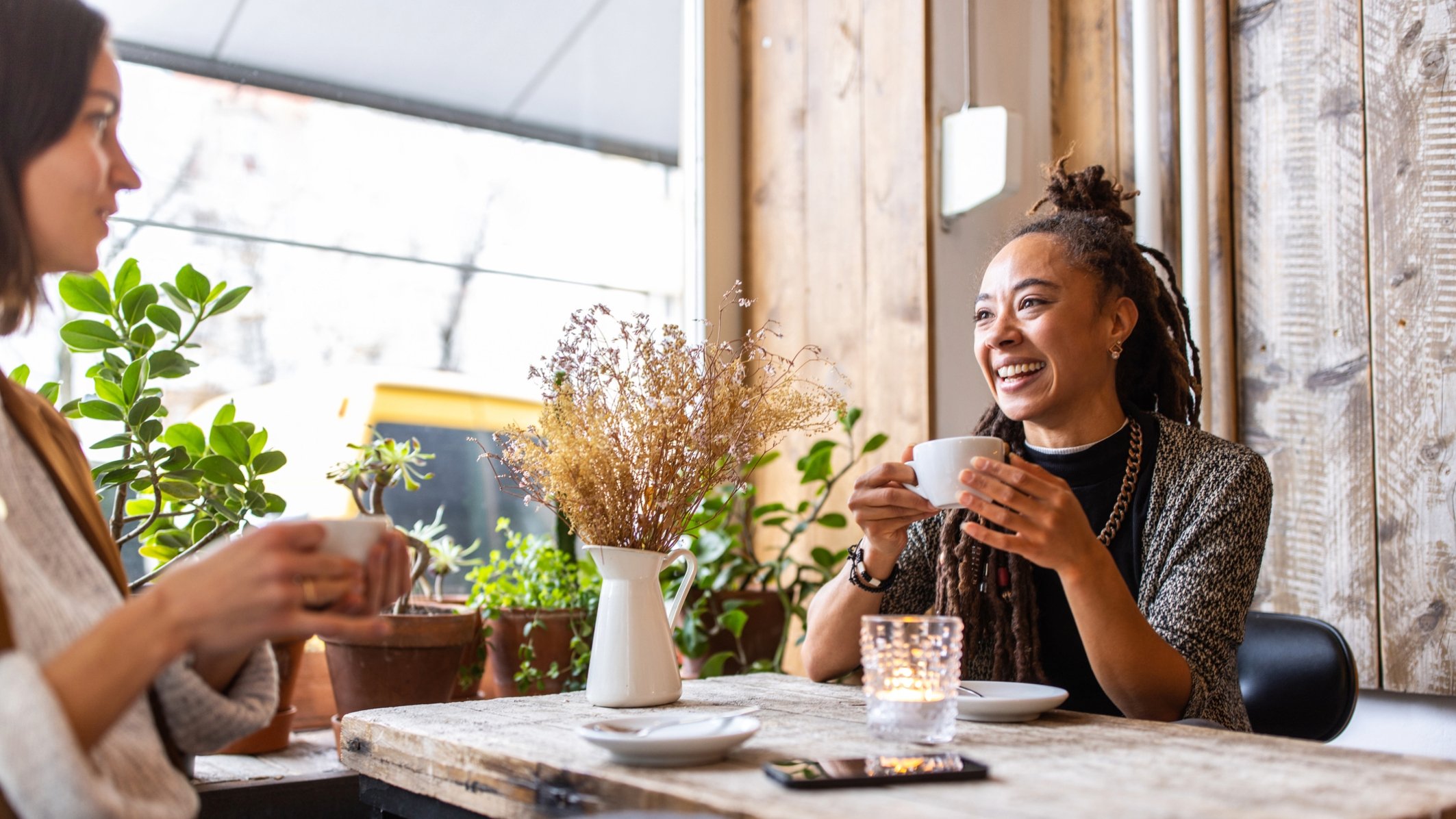PRIDE at UKG is an employee resource group (ERG) dedicated to celebrating our lesbian, gay, bisexual, transgender, queer/questioning, non-binary, intersex, and ally (LGBTQ+) employees at UKG. PRIDE at UKG aims to create a safe, welcoming, and inclusive environment where U Krewers feel comfortable bringing their whole selves to work each day.
In honor of Pride Month, UKG chatted with members of the Rainbow Parents Pod, a subgroup within our PRIDE ERG, to learn more about their family’s experiences as part of the LGBTQ+ community. The Rainbow Parents shared their stories of acceptance and understanding, as well as the most challenging parts of their journey.
This is the second story in our three-part Pride Month series. Read the first conversation here.
Janine S., Sr. Technical Training Specialist
Tell us about your family’s experience with the LGBTQ+ community? My wife and I have been married for 12 years; we live in Australia. We both identify as lesbian, although I am pansexual (attracted to person not gender). We have a toddler, Xander, and have been active members of our local rainbow family community since just prior to his birth. I am an administrator for a subgroup in our rainbow family community for women wanting support/guidance on assisted reproduction, which was a harrowing experience for us and full of hurdles traps and disparities. I assist women with education on their rights and some of the things to look out for and be aware of. I am also working on a blog (maybe to become a podcast one day) called “socially infertile geriatric mother,” which was my recorded classification for reproductive assistance.
What has been the most challenging part of this journey? Every part was challenging for different reasons. Convincing my spouse that a child would enrich our lives was the first hurdle. Then convincing our parents, who were worried how we and our child would be treated and potentially mistreated. IVF was crippling financially, emotionally, and physically. Add to this that the nature of most specialists is to be scientists first and humanitarians last. When we were successful after multiple attempts, I then had several age-related and genetic complications—hypertension, pitted edema (swelling), and preeclampsia, which resulted in most of my major organs failing and an emergency C-section 6 weeks prior to the due date. Once we were safe and home, things were a lot easier, and our family had an amazing village of supporters who gave us advice, food, time, and lots and lots of love. The challenges now are largely no different than a heterosexual family, apart from the fact that our son has been diagnosed as neurodiverse (sensory processing disorder), which presents a whole new range of learning and acceptance.
How did you share your identity with your child? Xander’s daycare educated him on the different types of families when he was 2. They beat us to it! He came home and said to a visiting electrician, “My name is Xander. I have 2 mums. Some of my friends have a mum and a dad and one of my friends lives with his grandma. Do you have 2 mums?” Xander has always identified us as Mummy J and Mummy D; he has three other close friends with two mums. He has never really questioned our family structure as it is what he has always known. When he asks about his dad, we advise him that he has two mums and that a nice man, who we haven’t met, helped us to have him.
Has becoming a parent changed you? Most people I know in the LGBTQI community say they come out daily and this doesn’t change when you become a parent. However, the questions do change, such as:
- “Who is his mum?” (We both are.)
- “Yes, but who had him?”
- “Is it funny to say that he looks a bit like his non-biological parent?”
- “How did you conceive?”
- “Do you know the father? Do you have any contact with him? Will you?”
- “How did you choose the donor?”
We always answer, and welcome questions, even if we would find it rude to ask these questions ourselves. We understand people are curious and try to educate in a neutral and non-judgmental way. Now that I have a child, I recognize how important it is to show acceptance and authenticity in all things, as this is something we want him to mirror: “to be the change.”
Now that I have a child, I recognize how important it is to show acceptance and authenticity in all things, as this is something we want him to mirror: “to be the change.”
How has the Rainbow Parents Pod supported you? The first day I started with UKG, an American colleague sent me a private message saying, “I saw your intro in Teams—what a beautiful family you have. You need to be part of UKG Pride, and I want to welcome you!” I felt so welcome and accepted, which was a complete juxtaposition from my previous working environment. I was quite overwhelmed at first, but also relieved. Even though I’m in a different time zone, I try to read every comment and discussion and listen to the recordings of the live sessions. I find it very insightful.
Has UKG championed you in your journey? It is nice to be part of something bigger than you. Although I have not physically met anyone in the employee resource groups, I feel like I know many from the common experiences we share. Even if we are a minority, we should never be marginalized for it. Shared experiences help you learn, accept yourself more, and grow. My manager has been amazing in relation to flexibility, especially to attend medical appointments for our son, sickness due to daycare, etc.
How do you overcome adversity? We have faced challenges too many times to count, unfortunately. Progress has been made and awareness is increasing, however, the acceptance in the microcosm that is UKG is still far from the norm in most workplaces and society at large. You learn to be resilient, and that is the most important thing to pass on to your kids—especially in a world driven by social media.
What is your advice to parents on raising an accepting child?
- Be real, always—even when it hurts, even when it’s not the norm and not what people want to see or hear. Live your life loud and proud or quiet and committed—whatever is authentic to you. Set the example for your children that who you are is always enough.
- Be the change in the world. Welcome questions. Start conversations. Ignorance is not always intentional; it may just be a lack of exposure. We were concerned when we changed our child’s daycare that there wasn’t a lot of diversity in the environment—but we are the diversity and that matters.
- Invest as much time as humanly possible into your babies. They can teach you far more than you can ever teach them. They are only little for a minute.



